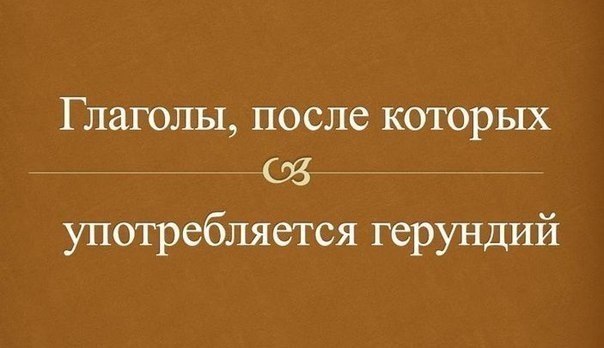Gerund or Infinitive?
Gerund
The gerund always has the same function as a noun (although it looks like a verb), so it can be used:
a. as the subject of the sentence:
- Eating people is wrong.
- Hunting tigers is dangerous.
- Flying makes me nervous.
b. as the complement of the verb 'to be':
- One of his duties is attending meetings.
- The hardest thing about learning English is understanding the gerund.
- One of life's pleasures is having breakfast in bed.
c. after prepositions. The gerund must be used when a verb comes after a preposition:
- Can you sneeze without opening your mouth?
- She is good at painting.
- They're keen on windsurfing.
- She avoided him by walking on the opposite side of the road.
- We arrived in Madrid after driving all night.
- My father decided against postponing his trip to Hungary.
This is also true of certain expressions ending in a preposition, e.g. in spite of, there's no point in..:
- There's no point in waiting.
- In spite of missing the train, we arrived on time.
d. after a number of 'phrasal verbs' which are composed of a verb + preposition/adverb
Example:
to look forward to, to give up, to be for/against, to take to, to put off, to keep on:
- I look forward to hearing from you soon. (at the end of a letter)
- When are you going to give up smoking?
- She always puts off going to the dentist.
- He kept on asking for money.
NOTE: There are some phrasal verbs and other expressions that include the word 'to' as a preposition, not as part of a to-infinitive: - to look forward to, to take to, to be accustomed to, to be used to. It is important to recognise that 'to' is a preposition in these cases, as it must be followed by a gerund:
- We are looking forward to seeing you.
- I am used to waiting for buses.
- She didn't really take to studying English.
It is possible to check whether 'to� is a preposition or part of a to-infinitive: if you can put a noun or the pronoun 'it' after it, then it is a preposition and must be followed by a gerund:
- I am accustomed to it (the cold).
- I am accustomed to being cold.
e. in compound nouns
Example:
- a driving lesson, a swimming pool, bird-watching, train-spotting
It is clear that the meaning is that of a noun, not of a continuous verb.
Example:
- the pool is not swimming, it is a pool for swimming in.
f. after the expressions:
can't help, can't stand, it's no use/good, and the adjective worth:
- She couldn't help falling in love with him.
- I can't stand being stuck in traffic jams.
- It's no use/good trying to escape.
- It might be worth phoning the station to check the time of the train.
(From: english4today)

|
avoid - |
избегать |
|
admit |
соглашаться |
|
consider |
считать, полагать, обсуждать |
|
dislike |
не нравиться |
|
deny |
отрицать |
|
delay |
откладывать |
|
enjoy |
наслаждаться |
|
escape |
избежать, спастись, вырваться |
|
excuse |
извиняться |
|
finish |
заканчивать |
|
fancy |
воображать; думать; любить |
|
imagine |
воображать |
|
involve |
вовлекать во что-то; касаться, затрагивать |
|
keep |
продолжать делать что-то |
|
mind |
возражать, иметь что-то против |
|
mention |
упоминать |
|
postpone |
откладывать |
|
practise |
практиковаться, тренироваться |
|
resume |
возобновить, продолжить |
|
regret |
сожалеть |
GERUND OR INFINITIVE?
Verbs where there is a clear difference in meaning:
Verbs marked with an asterisk* can also be followed by a that-clause.
|
come |
mean* |
stop |
| Come: |
|
Come + gerund is like other verbs of movement followed by the gerund, and means that the subject is doing something as they move:
Come + to-infinitivemeans that something happens or develops, perhaps outside the subject's control:
|
| Forget, regret and remember: |
|
When these verbs are followed by a gerund, the gerund refers to an action that happened earlier:
Forget is frequently used with 'never' in the simple future form:
When these verbs are followed by a to-infinitive, the infinitive refers to an action happening at the same time, or later:
|
| Go on: |
|
Go on + gerund means to continue with an action:
Go on + to-infinitive means to do the next action, which is often the next stage in a process:
|
| Mean: |
|
Mean + gerund expresses what the result of an action will be, or what will be necessary:
Mean + to-infinitive expresses an intention or a plan:
|
| Stop: |
|
Stop + gerund means to finish an action in progress:
Stop + to-infinitive means to interrupt an activity in order to do something else, so the infinitive is used to express a purpose:
|
| Try: |
|
Try + gerund means to experiment with an action that might be a solution to your problem.
Try + to-infinitive means to make an effort to do something. It may be something very difficult or even impossible:
|


